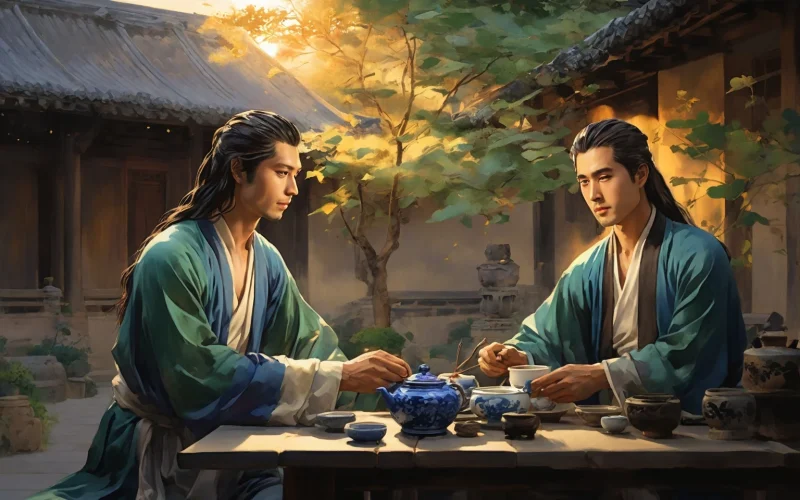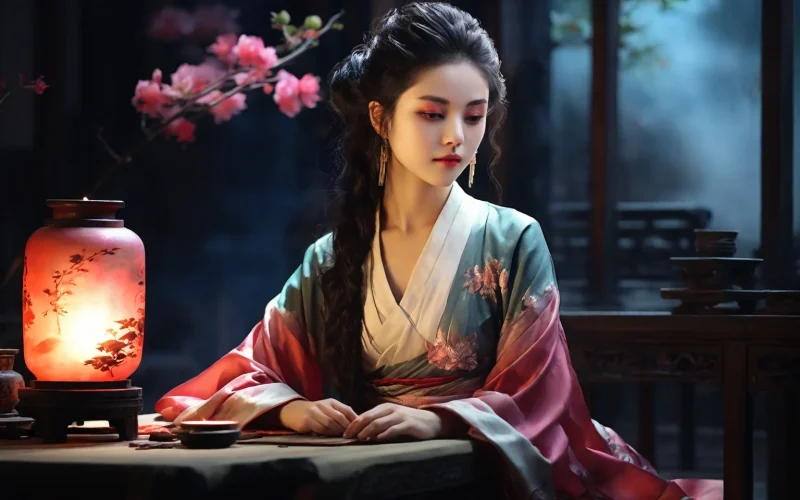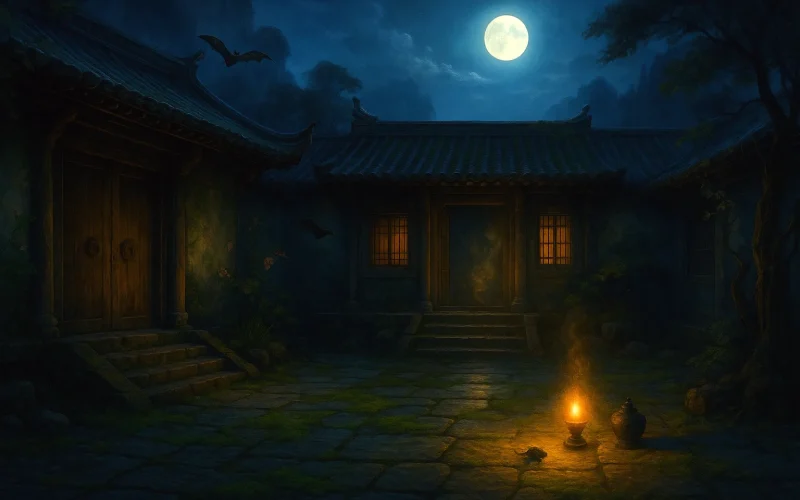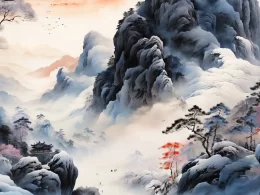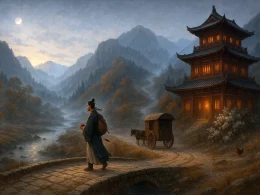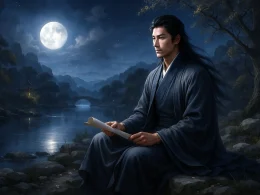I left three years ago;
Again I'm in my nooks.
Tonight green wine aglow,
I forget yellow books.
Ill, I survive at last.
What won't happen on earth?
Glad that the die is cast,
I'm free from care or mirth.
Original Poem:
「示弟」
李贺
别弟三年后,还家一日余。
醁醽今夕酒,缃帙去时书。
病骨犹能在,人间底事无?
何须问牛马,抛掷任枭卢!
Interpretation:
This poem was written in the eighth year of the Yuanhe era during the reign of Emperor Xianzong of the Tang Dynasty (813 CE). It was composed by Li He after resigning from his official post and returning to his hometown in Changgu. At the time, the poet was disheartened by his failed career, weakened by illness, and forced into seclusion. His heart was filled with complex emotions, including solace from familial bonds, lamentation over his unrealized ambitions, and a deep-seated cynicism toward society.
First Couplet:“别弟三年后,还家一日余。”
(After three years of separation from my brother, I finally returned home, though it has only been a day.)
The poet sets the temporal background of his homecoming, expressing the joy of reuniting with his family while subtly alluding to the melancholy of three years marked by career setbacks. This opening couplet encapsulates the poet's conflicted feelings.
Second Couplet:“醁醽今夕酒,缃帙去时书。”
(Tonight, my brother pours fine wine for me, while my bag still carries the books I took when I left.)
The act of serving wine symbolizes the brother's affection and hospitality, while the dusty books untouched in the poet’s bag evoke his deep emotions. The contrast between the warmth of familial love and the futility of his unrealized ambitions highlights both the solace and the sorrow in his heart.
Third Couplet:“病骨犹能在,人间底事无。”
(Though my frail body has endured, what in this world is free from disgrace?)
The poet reflects on his frail health, thankful to have survived and returned home, which he views as a blessing amid misfortune. He follows this with a scornful remark on the corruption and pettiness of worldly affairs, expressing his dissatisfaction with the world and his own bitter reflections.
Fourth Couplet:“何须问牛马,抛掷任枭卢。”
(Why question the outcome of the gamble of life? Like dice cast in a game, the result is predetermined.)
Using gambling as a metaphor, the poet compares the uncertainties of his official career to the whims of chance. On the surface, he adopts a tone of resignation, but beneath it lies an undercurrent of profound bitterness. This couplet, veiled in calm detachment, reveals the poet’s deep pain and disillusionment.
Writing Characteristics:
- Interwoven Emotions with Clear Progression: The poem alternates between comfort and sorrow, joy in reuniting with family and grief over failed ambitions. Through progressive layers of emotion, the poet vividly depicts his complex inner world.
- Subtle Symbolism with Deep Implications: The “dust-covered books” signify unfulfilled aspirations, while metaphors like “cattle and horses” and “dice games” convey the unpredictability of life and the poet’s sense of powerlessness.
- Elegant Structure with Balanced Couplets: Each couplet is meticulously crafted, with seemingly opposing lines complementing each other to enhance the emotional tension and depth of the poem.
Overall Appreciation:
Set against the backdrop of a disheartened return home, this poem uses vivid details and skillful composition to express the poet's complex emotions. It captures his dependence on familial bonds, his anguish over unfulfilled ambitions, and his cynicism toward societal corruption. The final couplet, in particular, adopts a tone of stoic resignation, concealing the poet's profound inner turmoil. The poem’s sincere emotions, concise language, and refined structure make it a masterpiece, showcasing Li He’s intricate craftsmanship.
Inspiration:
This poem reminds us that familial love is a source of warmth and solace when facing life’s adversities. While the poet was deeply grieved by his career failures, he had not entirely lost hope in life. It teaches us that in the face of hardship, adopting a calm demeanor for reflection is valuable, but true emotions should never be suppressed. This nuanced emotional experience reflects not only personal struggles but also profound insights into life and society.
Poem translator:
Xu Yuan-chong (许渊冲)
About the poet:
Li He (李贺), circa 790 - 817, was a native of Luoyang, Henan Province, and a Romantic poet of the Middle Tang Dynasty.






